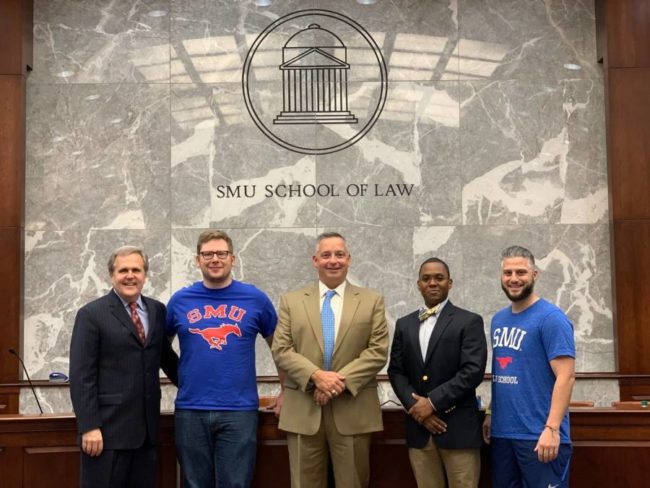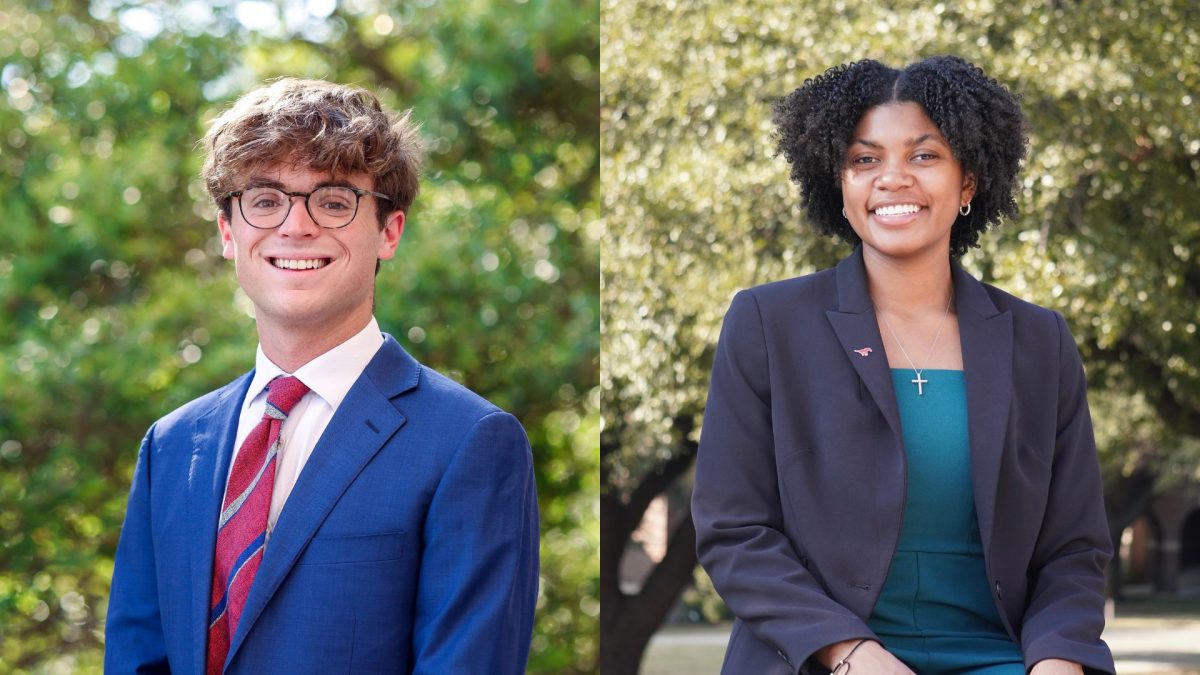A Dallas lawyer explored suicide prevention through the lens of a veteran and its importance in the law field in his lecture “Battling Suicides and Depression: How Lawyers Can Help Each Other.”
Twenty-nine students attended the lecture and heard how Brian Farlow’s 27 years of active and reserve military service was connected to his mental health as a lawyer.
“We are the most educated profession, with the possible exception of doctors, and yet we are struggling to maintain a decent mental health,” Farlow said. “We are struggling with suicides.”
According to a 2012 study by the Centers for Disease Control and Prevention, the lawyer occupation had the 11th highest suicide rate with 19 suicides per 100,000 professionals.
President of the Student Bar Association Brooke Adams, the SBA Mental Health Awareness Committee and Assistant Dean for Student Affairs Stephen Yeager planned this event as part of Dedman Law Wellness Week which coincided with National Law Student Mental Health Day.
“As a law student, it is hard, and Brian Farlow talked about the pressure you are in,” Adams said. “Here you learn it is okay to take a knee. It is okay to not be the best.”
Farlow played a video called “Shoulder to Shoulder,” which told the story of a soldier who attempted suicide. A fellow soldier prevented the suicide when he noticed that after a divorce his friend was not playing his guitar very much or talking to many people. This soldier saved his friend’s life by noticing the red flags and by removing the firing pin from his gun.
Farlow emphasized how soldiers, civilians and lawyers all have the ability to fall into depression. Like the soldier who looked out for his friend, lawyers need to do the same. Farlow explained the importance of knowing the people who you work with.
“You are going to know them more than your family and spouses,” Farlow said. “If you know these people the warning signs are going to be more obvious to you.”
Texas Lawyers’ Assistance Program has an action program for suicide prevention, and Farlow compared it to the Army’s “ACE” training. ACE stands for Ask, Care and Escort: you must ask your battle buddy directly if they plan on committing suicide, care for your buddy and escort your buddy to help.
“Do something. Ask the question. That’s the kind of action you can take,” Farlow said. “Care about your fellow lawyer.”
Farlow’s team leader who was killed in Afghanistan made him more aware of the importance of mental health and taught him how to lead by example.
“He always told the team that if for any reason you did not feel like you could go out and patrol one day, you would get the day off no questions asked,” Farlow said. “No stigmatization.”
Student Genesis Reed commented on how Farlow’s event made topics like depression and suicide seem less taboo and promoted open discussion of the topic.
Farlow emphasized the importance of taking action to ask and help peers; however, he also explained the importance of escorting them to the help of medical professionals.
If you or a friend has thoughts of self-harm, call 214-828-1000 or 1-800-273-8255. Additionally, The Texas Lawyers’ Assistance Program has a hotline that specifically caters to law students at 1-800-343-8527.









